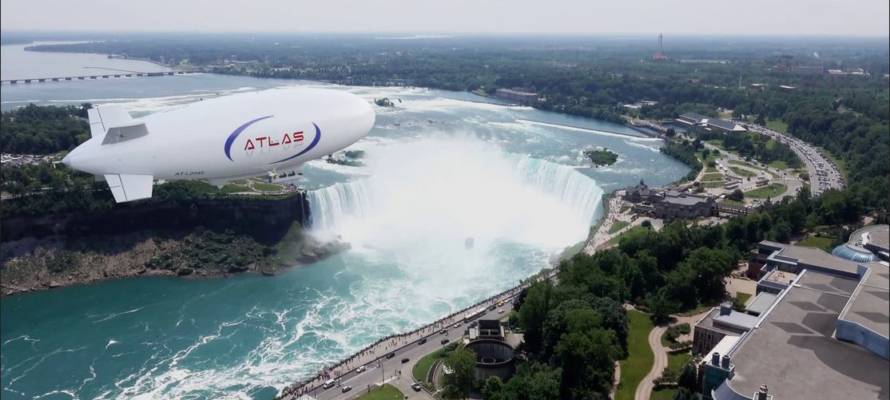New luxury dirigible airships will be a hit for tourists, giving them a 5-star but low carbon-footprint aerial view of the world’s top destinations.
By Yakir Benzion, United With Israel
Move over, Goodyear Blimp! An Israeli startup is aiming not only to overtake you and your polluting engines, but to make it easier for anybody to take a sky-high ride in an environmentally friendly air ship.
Gennadiy Verba is the CEO and founder of Atlas LTA, a company making lighter-than-air dirigibles that can be used for communications, surveillance and transportation, with his current emphasis on gas-powered blimps for the tourist industry.
“I liked airships since I was a kid,” Verba told Times of Israel this week. “I always believed that this forgotten technology really deserves a much better future. Today we have much more suitable materials, more advanced ways to design them, and the demand is growing.”
Verba, an oleh (immigrant) from the Ukraine, and his partners are working on what they call “the most environmentally friendly airship in the world” that will use electric motors and be floated by helium gas so they are safe and non-polluting, leaving no carbon footprint.
Passengers will look down from a luxury cabin attached to the aircraft and be treated to a spectacular view. The spacious interior will include large chairs, huge windows and observation decks for around 17 people at a time.
Verba is using the design of the existing AU-30 airships, which have proven themselves in use for surveillance and photography, the Times reported. Certified and approved by aviation authorities, the new passenger airships will just as safe as, if not safer than, airplanes and helicopters.
Americans are familiar with blimps – non-rigid airships that rely on the pressure of lifting gas to fly — mostly through the three operated by the Goodyear Tire company that carry TV crews high over sporting events like the annual Super Bowl. History buffs recall the 1937 Hindenburg disaster, back in the days when blimps used highly explosive hydrogen gas instead of helium, when the German airship caught fire and crashed in flames.
Verba said he hopes to launch his airship service within the next two years, with passengers paying about $200 for a 30-minute ride that will take them to an altitude of 300-1,500 meters (1,000-5,000 feet) at a low speed of 60-90 km/h (37-55 mph) so that those on board will literally feel like they are floating through the air.
The Atlas blimps are generating lots of international interest, Verba said, adding that not only does he have inquiries from Asia, Europe and Israel, but his company is also in discussions with partners in the Gulf who are interested in the technology.
Verba’s dream, hea says, is to create an airship big enough to eventually move serious cargo. But for starters, the tourism industry is a great new sector for the modern use of airships.
